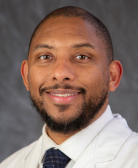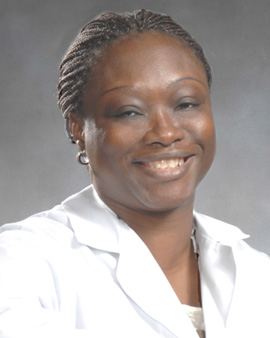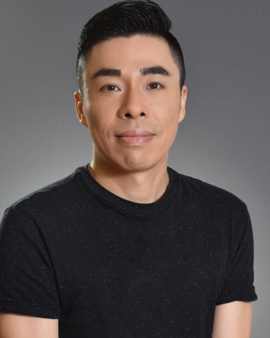Destination Excellence: Meet the Newest Members of the Diversity Committee
In this installment of Destination Excellence, we asked the three newest members of the College of Medicine’s Diversity Committee to share their experiences: how and why they joined the committee, how they feel about serving and what they hope to achieve. The Diversity Committee meets monthly, advising College of Medicine leadership on processes, policies, and implementation and evaluation issues. The group includes mentors, clinicians, educators and experts within their fields.

Thomas Butler, MD
Thomas Butler, MD
Clinical Associate Professor of Surgery, Crozer-Chester Medical Center
I nominated myself for the Diversity Committee because I wanted to become more involved on the medical student side. I felt I could add something to the committee, being an underrepresented minority and having served on national diversity committees prior. I am enjoying the comradery and wonderful insight from an extremely diverse committee. There is support in all facets, from intra-committee support for projects to specific tasks for the students and faculty. I think serving is one of the great honors of attaining an MD. It is the extra things in medicine that make the field special. Certainly we know that diversity and inclusion lead to better outlooks and outcomes in what was an extremely vanilla (pun intended) field years ago. I look forward to progress on this committee; there is a lot of work to do.

Folasade Kehinde, MD, MPH
Folasade Kehinde, MD, MPH
Associate Professor of Pediatrics, St. Christopher’s Hospital for Children
I received notification of my nomination from the Office of Faculty along with information regarding the mission of the committee, meeting times, time commitment, term, etc. I filled out a survey regarding my interest and was notified a few weeks later about my acceptance onto the committee. As a member that identifies as part of underrepresented communities in academic medicine, I wanted to lend my voice in helping to continue the tradition of excellence at the College of Medicine through diversity and inclusion that Drexel University is known for. It has been very illuminating and humbling to be able to serve in a position that influences university policies. Meetings usually take about an hour and a half each month, and the term is for four years. There can be an additional time commitment when serving on a subcommittee or a special project. During my term, I hope to assist the committee and the College of Medicine in creating and implementing programs for the professional development of staff, medical students, graduate students, and postgraduate fellows and residents who are underrepresented in medicine and science. Working as part of a committee is a way to lend our voices and effect the change we would like to see. This includes improving faculty and student diversity and inclusion in our colleges.

Liang Oscar Qiang, MD, PhD
Liang Oscar Qiang, MD, PhD
Assistant Professor of Neurobiology and Anatomy
During a departmental faculty meeting, there was consensus that they wanted to nominate me for the Diversity Committee. After I was nominated, I wrote a paragraph to describe why I want to be on the committee. In academia, I’m not a minority, because my race is not underrepresented, but in society I am a minority. So, to have an Asian voice on the committee is really important. In the first meeting, I realized I was the only Asian there, so to be there is meaningful for me and the whole Asian community at Drexel. It’s also important for there to be representation on the committee for the Graduate School.
In addition to the monthly meetings, there are subcommittees some members serve on. Also, students want to have faculty to lead interest groups, so they can have a robust discussion with us as facilitators. My goal is to make the environment at Drexel even more friendly to people who are underrepresented, and to be a voice to push our university to do more. Serving on the committee gives us all an opportunity to hear personal stories from the committee members, sometimes from when they were young and were bullied. Hearing those stories can be useful when talking to students about times they encountered similar situations. One goal I have for my time on the committee is to work toward greater diversity in the Graduate School faculty. I think Drexel is doing a really good job overall with diversity, especially at the student level. My department has a lot of underrepresented minority students, and we have done well recruiting female faculty members. We will continue working hard to recruit more faculty members from underrepresented minority groups.
In the print version of this column, we mistakenly identified Folasade Kehinde, MD, MPH, as an assistant professor instead of an associate professor. We apologize for the error.
Back to Top